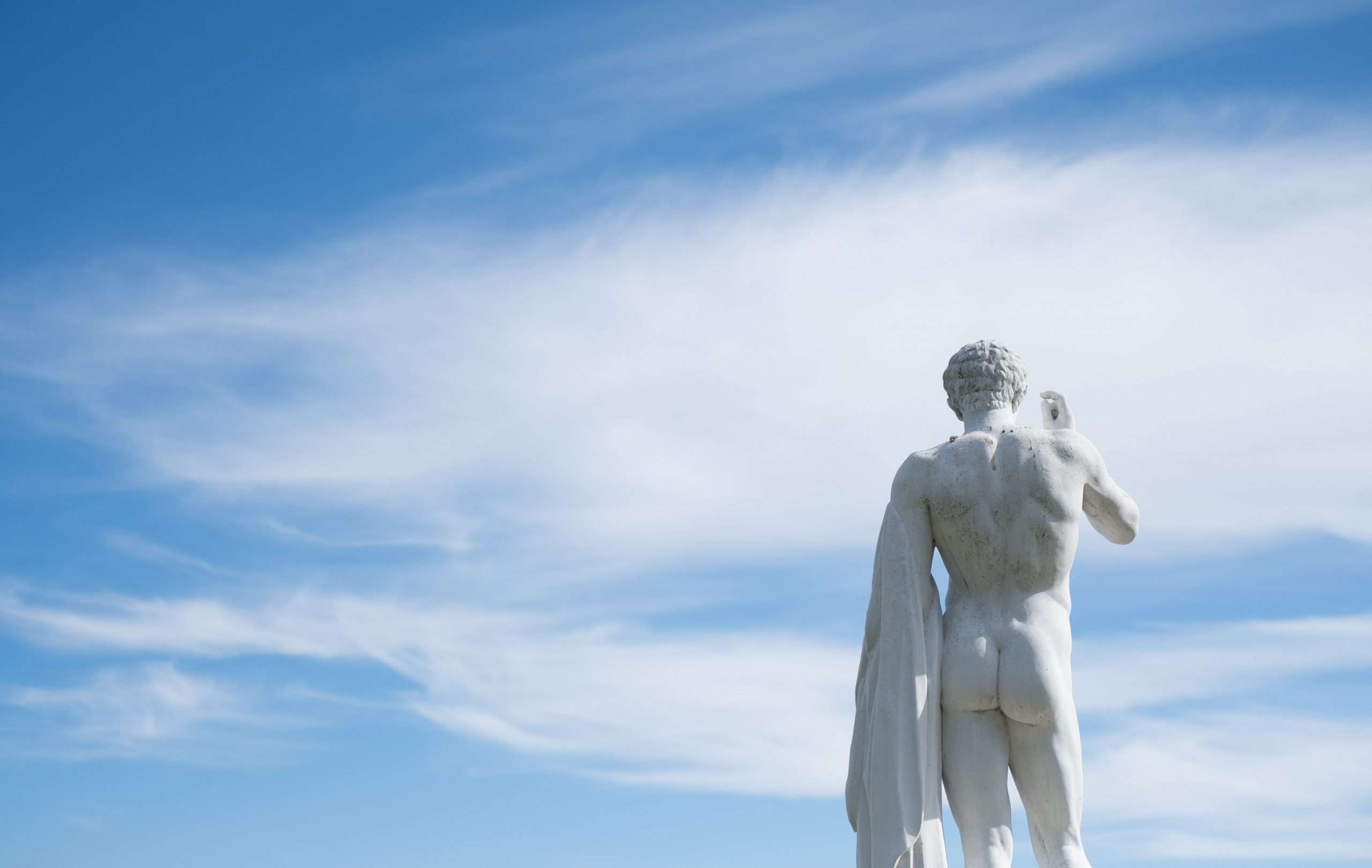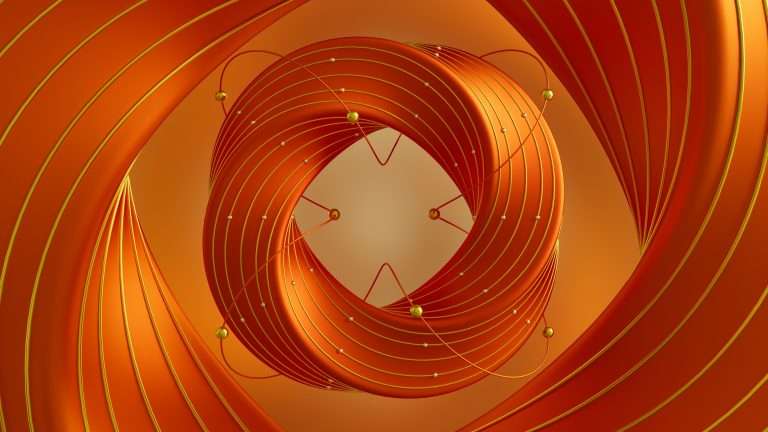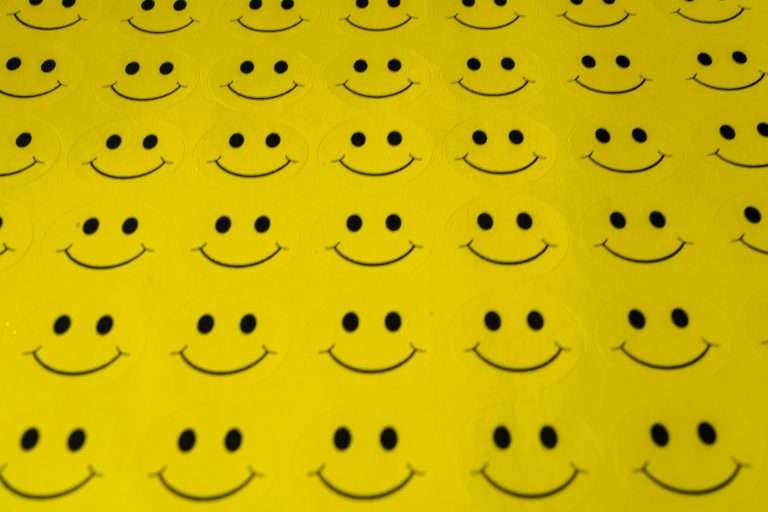If you don’t think a liberal education would be of value to you, you’re precisely the person who needs it the most.
It is said that one of the greatest displays of courage is to deviate from the beaten path. To go against your rational thinking and embrace your true calling. It’s when one looks the world in the eyes and dares to swim against the stream, a stream made up of the opinions, pieces of advice and good intentions coming from others. When one affirms the desire to pursue a liberal education, this stream turns into a tsunami.
Such an endeavor is rarely seen as a noble one, revealing the spiritual impoverishment of our society. Encouragement turns into doubt and pride becomes guilt.
In the age of “self-made” millionaires, marketing gurus and finance coaches, what good is it to break your brain over the ideas of Socrates or Epictetus? To wrestle with the big minds of our history? It seems that this avenue in life is solely relevant to people who want to pursue a career in academia.
When one could choose to do anything…why would one go through an expensive degree that doesn’t teach you anything related to surviving in a fierce economic environment?
To paraphrase an Internet user, have you seen any teacher drive a Lambo?
Philosophers are seen as out of touch people who waste too much time splitting hairs on the meaning of obscure words and debating esoteric notions, such as the nature of the self or free will. If anything, such thinkers get reduced to ancient gurus who have the correct formula for you to turn your life around. Aristotle’s views, beside those on happiness, are rarely studied, as if his broad contributions to humanity can be reduced to the search of that elusive state of mind.
As someone who has studied English at university, I’ve experienced first-hand the prejudices against my degree. The summer before my first year, when friends and acquaintances asked me about my university major, I could see the bewilderment on their faces, getting more prominent with every syllable I enunciated of my wordy degree: English literature, language and linguistics. Yes, it was a mouthful.
I always felt like I needed to do extra work to justify my choice. No one questioned my peers who opted for a degree in computer science or marketing. But my liberal education was seen like an anomaly, a deviation from the norm, an affront to the very fabric of society.
I didn’t feel as some kind of revolutionary figure, resisting the social pressures, but more like a misunderstood and out of place individual.
During my first days at university, a young professor asked the whole group of students in his literature class why they chose to study English. I don’t remember the answers my fellow classmates gave, but I recall the feeling of not having a sophisticated enough reason to give for my choice. I blurted something to do with widening my horizons and following my passion. The thing is, I had never deeply reflected about the reason why pursuing a humanities degree was appealing to me.
The Spirit of Liberal Education
At its core, a liberal education strives to shape individuals that don’t go through life without asking the “big” questions. Those can be:
- What does it mean to lead a virtuous life?
- What’s worth striving for?
- What’s the nature of reality?
- What makes a meaningful life?
Besides that, a liberal education should instill in its students a love of truth, beauty and goodness. It plants the seed for a life of inquiry and reflection, one in which the pupils of humanities don’t go through their daily activities on autopilot, but make a habit out of stopping and pondering the goals, motivations and values that inform their actions.
Out of all the definitions that try to encapsulate the spirit of a liberal education, from more philosophical ones to more levelheaded/prudent ones, there’s only one I found that manages to deliver the ethos of this human endeavor in a simple, yet striking manner. It belongs to Matthew Arnold, an English poet, who put it this way: a liberal education aims to teach us “the best which has been thought and said in the world.” Although it’s subtle, this definition hides an invitation: to participate in the great lineage of illustrious thinkers by engaging with their ideas.
The Difference Between a Liberal and Professional Education
Being an advocate for a liberal education is not the same as dismissing the importance of training individuals to be skilled workers in various professional fields. People’s excellence, be it in medicine, carpentry or design needs to be cultivated and encouraged. But while a professional education means taking a narrow slice out of the disciplines’ pie and researching it closely, studying the liberal arts broadens one’s intellectual arena, presenting the learner with a wide assortment of ideas. Moreover, while the vocational education is predicated upon becoming competent in a specific field, liberal education proposes to foster accomplished individuals in the art of living.
In his works, Aristotle affirms the two kinds of study one can pursue:
There are branches of learning and education which we must study merely with a view to leisure spent in intellectual activity, and these are to be valued for their own sake; whereas those kinds of knowledge which are useful in business are to be deemed necessary, and exist for the sake of other things.
In one of his books, Herman Hesse writes:
Our universities fail to guide us down the easiest paths to wisdom… Rather than teaching a sense of awe, they teach the very opposite: counting and measuring over delight, sobriety over enchantment, a rigid hold on scattered individual parts over an affinity for the unified and whole. These are not schools of wisdom, after all, but schools of knowledge, though they take for granted that which they cannot teach — the capacity for experience, the capacity for being moved, the Goethean sense of wonderment.
Hesse is hinting at the overly technical side of education, which although has its merits, is dominating the experience students get in schools. The wonder-full contemplation of art, nature or life itself is being pushed to the side in favor of more utilitarian activities, aimed at supporting the student in the “job market.”
Why People Dismiss Liberal Education
We live in a material world. As trivial as this statement is, it nonetheless encapsulates the expectations and demands we must meet. Its indisputable reality informs the kinds of choices we we’re required to make, the most salient of which is having a job that can sustain our existence: food, shelter, safety.
The usefulness of studying humanities can’t be easily transpired into arguments. The value is in the experience itself, rather than the outcome one may get. You can’t arrive at the usefulness of this type of education as you would a mathematic proof. Sure, you can read all the facts and make all the appropriate mental inferences about the value of liberal arts, but you won’t arrive at the essence of this pursuit. It’s like trying to convince someone why being in love is a transformative experience.
The Lie of Liberal Education
To learn is a natural pleasure, not confined to philosophers, but common to all men.
A common rebuttal to the idea of encouraging students to pursue a this kind of general education is that most (especially the ones coming from poorer socio-economic backgrounds) can’t afford. Poring over the dry words of Aristotle or the delicate writing of Saint Augustine is a luxury only well-off people can have.
An universal education is sadly seen as a trivial indulgence, a way for the elites to proclaim their superiority and pass the time discussing topics raised by dead men.
However, a general education shouldn’t be perceived as an elitist venture, but rather as an essential area of study, particularly for individuals who have been deprived of political agency. It serves to acquaint students with the crucial inquiries that challenge rigid social structures. Moreover, engaging with classical knowledge has the potential to empower people, equipping them with the necessary skills to introspect critically while also engaging actively in their broader community.
The purpose of a liberal education is right there in its name: it seeks liberation. If done with sincerity, this kind of learning will free its students from the tyranny of materialism and the emptiness of nihilism. It will open their eyes to the systems of oppression and the unjust features of our complex world.
When making the case for liberal education to low-income students and families, I often point out that there is a long tradition of steering working-class students toward an education in servitude, an education in obedience and docility, an education in not asking questions. The idea that liberal education is only for the already privileged, for the pampered elite, is a way of carrying on this odious tradition.1Roosevelt Montas, “Rescuing Socrates”
Perhaps there’s no example demonstrating the power of taking up classical learning that’s more moving than Frederick Douglass’ story, a former slave turned abolitionist. His journey towards liberation started with his love for education. Despite his condition prohibiting him from engaging in any sorts of scholarly matters, Douglass learned to read and write, which opened up a whole new world of ideas and perspectives. Perhaps his body was still the property of his owner, but his mind was finally free. Over time, he became a powerful voice in the abolitionist movement, using his oratorial skills to advocate for the rights and dignity of all individuals.
Therefore, far from being an avenue for the elites to display their prestige, it’s a way for people from all walks of life to reclaim their agency, to empower themselves and build up their character.
Why Liberal Education Is (Still) Relevant
First, some statistics: depression is among the most common mental disorders today, as is anxiety, with numbers on the rise especially affecting young demographics. When it comes to suicide, it’s the fourth leading cause of death for people between 15 and 29. In our jobs things don’t look rosy either. 89% of workers have experienced burnout within the past year, research shows. Moreover, feelings of hopelessness and a lack of meaning creep up in many people’s lives. This doesn’t look like a particularly sane world to me.
Okay, so what?
When society (and the global economic system) demand that we’re faster, better, more of everything each day… no wonder we go crazy. We break down. After all, we’re finite beings.
Our finite condition doesn’t mean we can’t get a taste of transcendence – of ineffable beauty, of awe, of deep meaning. But it won’t be found between the lines of a spreadsheet, nor in the acquisition of a new fancy gadget.
Whether we like it or not, in our Western society the pursuit of happiness is equated with the pursuit of money to a large degree. And as much as positive psychology tries to redefine happiness in more holistic terms, I think our obsession with this elusive condition is detrimental to our well-being.
A liberal education offers a common “grammar” to talk about the world. At its core, it’s an exploration into the art of living.
I find it imperative to engage in activities that don’t have any monetary gain or status associated with them, and the study of liberal arts is a wonderful way to do that. It provides an oasis from the market values that dominate society, as well as a place where we can begin to cement our identity and character, without defining our existence solely through our job. It’s a sad reality that many people are strangers to themselves – they embody mere professional titles, that when striped away or challenged, leave them with a bleak realization: their inner worlds were impoverished by the constant striving for outer “success.”
In Notes on a Nervous Planet, Matt Haig gets to the crux of the matter – learning is not (merely) an outlet for knowledge and skill-acquisition, but an activity worth doing for its own sake:
To see the act of learning as something not for its own sake but because of what it will get you reduces the wonder of humanity. We are thinking, feeling, art-making, knowledge-hungry, marvelous animals, who understand ourselves and our world through the act of learning. It is an end in itself. It has far more to offer than the things it lets us write on application forms. It is a way to love living right now.
How To Balance The Two Kinds of Educations
In Beyond the University, Michael Roth wrote:
Education is for human development, human freedom, not the molding of an individual into a being who can perform a particular task. That would be slavery.
One of the absurdities of education, as it’s currently done in most developed countries, is the requirement to commit to a professional path before you even acquired a smidge of maturity and discernment to know “what you want to be.” And this choice doesn’t come merely in the weeks of preparation for college admission, but also when deciding which high school to attend and which classes to take.
This is completely backwards.
If you “enroll” people in the working field without proper knowledge and wisdom on how to approach life, their only horizons will be their cubicles, their only goals will be informed by mimesis, and their thinking depth won’t go beyond a half-baked tweet.
The unfortunate truth is that when someone is prepared for life as an adult, by being able to support themselves, they will likely get swept up by the rat race and career ladder and dismiss learning that supports one’s soul.
Education should be the means through which we discover what we want to pursue as careers. And it should be chosen carefully, with an understanding of the impact one can have on the world.
In the attempt to make people self-reliant (or simply obedient?), vocational education has stripped us of our humanity, of our shared grasping for a meaningful existence. By over-emphasizing preparation for our careers, education has become an instrumental effort that lost its noble purpose of forging noble characters and encouraging a life of contemplation.
Therefore, because it’s not practical (or even desirable) to neglect your vocational training, there should be a balance of the two kinds of educations. And because the material reality I talked about above is breathing down our neck from a relatively young age (cue the whispers of your taxes, rent and/or debt), it’s understandable to prioritize the career path at first. One could also make a strong argument for why engaging in a liberal education too young may not land with the same impact as say, after one has already settled in with a job, has experienced adult life for a while and has conceptualized the world more deeply.
So a liberal education for slightly more mature individuals could be the answer, as David Perell explains in his article.
How Liberal Education Could Change The World
Learning prepared one for autonomy and for citizenship. Learning also led one away from the crowd; it helped one escape mere imitation and opened access to authenticity. Finally, education was meant to offer us the opportunity to discover the kinds of work we would find meaningful.2Michael S. Roth, “Beyond The University”
The skills and values nurtured when undergoing a general education will carry the individual through all stages of life: from finding meaningful work, to thinking about current events in with a critical mind, or accepting the inevitability of death. The students of liberal arts will (or should) be concerned with character more than popularity, truth over bullshit, beauty over spectacle, substance over appearances, and inherent value over mere price tag.
We need people who think by themselves, or as Emerson would say, who are “self relying,” people who aren’t swept by the latest hype trend and who don’t shy away from going against the current, by either rejecting outdated customs or dismantling paradigms.
If you’re still in doubt about the value of a classical education, refer back to the quote I gave at the beginning of this piece.
Footnotes
- 1Roosevelt Montas, “Rescuing Socrates”
- 2Michael S. Roth, “Beyond The University”



